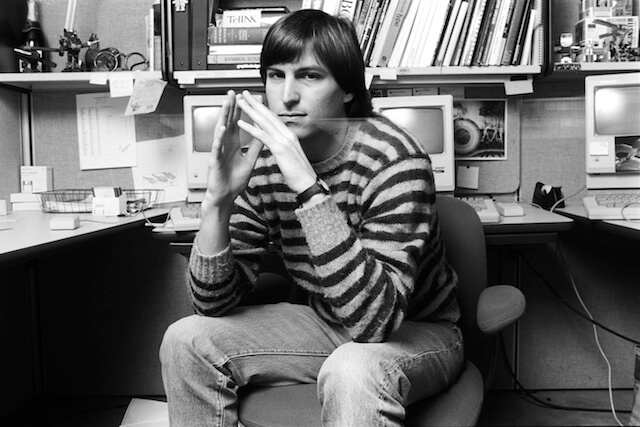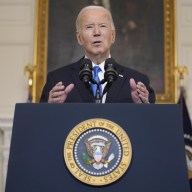‘Steve Jobs: The Man in the Machine’ Ragging on the assembly line documentaries of Alex Gibney gets old, especially since he makes so many of them. “Steve Jobs: The Man in the Machine” is the third Gibney film released in 2015, and one of them was a four-hour look at Frank Sinatra. They’re not terrible, and sometimes they’re even good; this year’s “Going Clear” could stand more insight, but it gets the job done. “Steve Jobs,” however, is everything that’s wrong with the Gibney approach: a combination of pure exposition and shallow insights, this one combined with a takedown that’s borderline passive-aggressive. It doesn’t want to be a hit piece but it’s missing those aspects — including Jobs himself, though Gibney finds plenty of old clips in which he hangs himself — that might make it actually useful. Of course, Jobs only has himself to blame for the parade of accusations and character assassinations that eat up most of “The Man in the Machine.” The tech god made a lot of enemies on his rise to the top, his fall to the bottom and his second rise back to the top. Some, like his original colleagues, mix reverence with wariness. Others, like former lovers, are more forthright. They’re also not prone to subtlety. One commentator puts forth the painfully simple notion that the world was connected by someone so cold and remote. That’s the line Gibney’s film runs with, using it to ask giggle-inducingly rhetorical questions on the robotic narration track — questions like: have Jobs’ gadgets really been for humanity’s benefit? Have you ever noticed that we’re “alone together,” as one talking head actually puts it? RELATED: “The Black Panthers: Vanguard of the Revolution” gives the Party a real movie These are not the right questions — or rather, they’re the questions that an undergrad media studies student gets asked the first week. Gibney’s thoughts, on Jobs and on technology’s effect on the masses, tend to be the most basic and banal — as though he thought he was breaking the news that Jobs was a complicated jerk and smartphones imprison us all in our own solipsism. (It doesn’t entertain the notion that social media has a bright side too, enabling activist movements and, on a lesser note, comforting lonely nerds with niche interests who previously would have never found likeminded souls.) But what do you expect from the Robert Pollard of documentaries? Not to slag on Pollard; two-minute songs are easier to toss off than two-hour docs on earth-quaking subjects. Gibney films have also tackled Enron, torture, Jack Abramoff, Eliot Spitzer, the Catholic Church sex scandals, Wikileaks and Lance Armstrong, plus difficult-to-simplify artists like James Brown and Fela Kuti. Gibney just cranks them out, and it shows, in their 101 profiles and, perhaps most egregiously, his use of painfully obvious songs to score key life moments. “The Man in the Machine” goes easier on this angle than most. He mostly plays live Bob Dylan, one of Jobs’ favorites (whose lyrics he often rewrote to fit his own life), and the closest he comes to this dastardly act is using a commercial for Apple’s new line of color-heavy computers that actually plays the Stones’ “She’s a Rainbow.”* Gibney always wants to be the definitive take on a major topic, but at this point, after over a dozen films, the only worthwhile Gibney topic would be one on the questionable filmmaking habits of Alex Gibney. * Correction: This piece originally misrepresented this scene, saying it was Gibney using “She’s a Rainbow” and not the Apple marketing team. As Mr. Gibney himself helpfully pointed out, this is not true, and it was someone else using painfully obvious music cues, for a change. We regret the mistake.
Director: Alex Gibney
Genre: Documentary
Rating: R
2 (out of 5) Globes
With ‘Steve Jobs,’ Alex Gibney treats a complex man to one of his simplistic docs

Magnolia Pictures
Follow Matt Prigge on Twitter @mattprigge


















